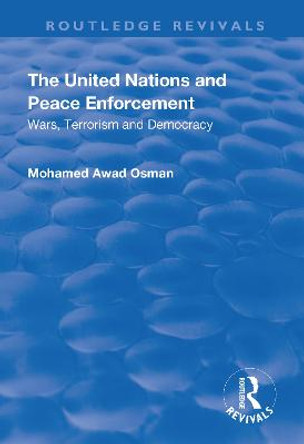Description
In this book , the author explains previously unaddressed historical outcomes resulting from the combined impact of the September 11, 2001 attacks and the United States' subsequent Global War on Terror. While expounding on the finer details of the decades-long interaction between militant jihadism and the Global War on Terror, the analysis explores two contrasting narratives: bellicose nationalism and movements of peace and democracy. As central drivers in the historical evolution of America, their contrasting influences shaped policy, political culture and strategic approaches in both the domestic and international arenas. Throughout the post-9/11 era, mainstream America underwent significant cultural and political shifts away from the narrative of peace and democracy as it tilted towards bellicose nationalism. Focusing primarily on the presidency of George W. Bush, the book explores how nationalism harmed the rule of law, human rights and democracy, both domestically and internationally. Viewing war as an institution , rather than as a means to promote democracy, the author conducts a reality-based demythologization of war, demonstrating how costly and counterproductive it has been. In this light, he questions the historical efficacy of war as well as the way nationalism both generate and glorifies war.
About the Author
Harry Anastasiou is professor of International Peace and Conflict Studies at Portland University.
Reviews
"Harry Anastasiou presents some of the most advanced knowledge about how adversarial nationalism conditions democracy, justice, peace, and political culture in ethnocentric terms in nation states. The War on Terror and Terror of War: Bellicose Nationalism versus Peace and Democracy sheds light on issues that deserve more attention yet haven't been adequately addressed in other studies. These include the importance of understanding how the interconnected nationalist exceptionalism narrative comprising loyalty and duty to the nation and the peace and democracy narrative that includes human rights and the rule of law impact U.S. foreign policy. The author elaborates how both practices, and their values are projected in U.S. economic and military policies that shape global peace and security. This unique and creative book is a must read for peace practitioners, students, and policymakers interested in the role of nationalism as well as global and inter-sectional peace building strategies that are adapted to local environments to generate locally owned diverse peace building practices."
-- Sean Byrne, University of ManitobaBook Information
ISBN 9781666915495
Author Harry Anastasiou
Format Hardback
Page Count 270
Imprint Lexington Books/Fortress Academic
Publisher Lexington Books
Weight(grams) 562g
Dimensions(mm) 237mm * 157mm * 26mm








